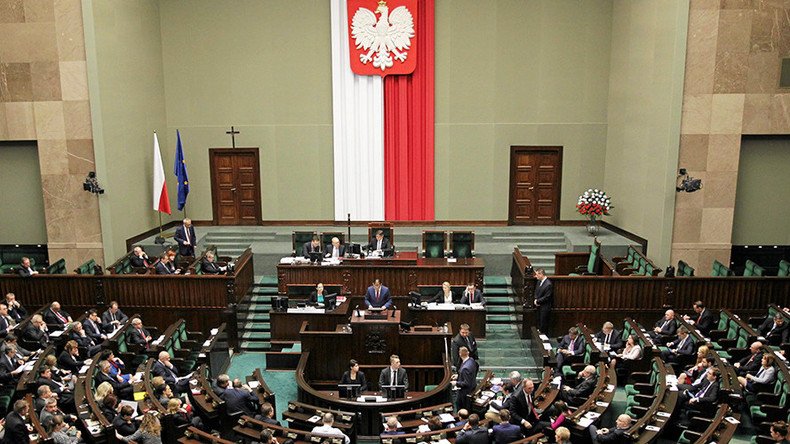Poland tightens anti-terror laws, making it easier to spy on foreigners

The Polish parliament has approved a bill to amend the country’s anti-terrorism laws, giving authorities more flexibility in monitoring the movements of foreign citizens without court approval, and allowing the holding of suspects without charges for up to two weeks.
Under the bill, Poland’s state security service would be allowed to conduct surveillance of foreign citizens for up to three months without prior court approval, Reuters reported.
Authorities would also be allowed to hold suspects for 14 days without charges but with court approval, drastically lengthening the current period of 48 hours.
The legislation would also make it easier for foreigners to be deported if they were deemed a threat, and would regulate the sale of pay-as-you-go SIM cards, which are currently sold freely and anonymously. Such SIM cards, combined with “throwaway phones,” are often used in crimes as they cannot be easily traced to a particular individual.
The changes are being pushed forward ahead of two major events set to take place in Poland.
In July, a summit attended by the heads of NATO members, including US President Barack Obama, will take place in Warsaw. Two weeks later, the city of Krakow will host World Youth Day, a Catholic event due to be attended by Pope Francis and around two million pilgrims from across the globe.
Experts say that both events pose a terror risk.
"Poland does not face any immediate threats from Islamist militants, but we are no longer an anonymous country for them," a high-rank security source told Reuters on condition of anonymity.
The legislative changes have been backed by the ruling conservative Law and Justice (PiS) party, which says the move is necessary to address such threats. The parliamentary approval came as a pan-European rights body recommended on Friday that Poland introduce more checks to the surveillance powers of police under another law amended by PiS.
Amnesty International, however, was quick to slam the bill for giving “seemingly unlimited powers” to Polish intelligence services.
In order to officially become law, the changes must be approved by the upper chamber of parliament, where PiS also has a majority, and be signed by the president – both of which are extremely likely scenarios.













